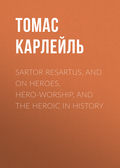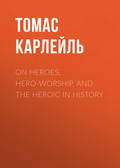
Томас Карлейль
Sacred Books of the East
SPELLS RECITED DURING THE CLEANSING
Zarathustra asked Ahura Mazda:—
O Ahura Mazda! most beneficent Spirit, maker of the material world, thou Holy One! How shall I fight against that Drug who from the dead rushes upon the living? How shall I fight against that Drug who from the dead defiles the living?
Ahura Mazda answered:—
"Say aloud those words in the Gâthas that are to be said twice. 'I drive away Angra Mainyu from this house, from this borough, from this town, from this land; from the very body of the man defiled by the dead, from the very body of the woman defiled by the dead; from the master of the house, from the lord of the borough, from the lord of the town, from the lord of the land; from the whole of the world of Righteousness. I drive away the Nasu, I drive away direct defilement, I drive away indirect defilement, from this house, from this borough, from this town, from this land; from the very body of the man defiled by the dead, from the very body of the woman defiled by the dead; from the master of the house, from the lord of the borough, from the lord of the town, from the lord of the land; from the whole of the world of Righteousness.'"
O Maker of the material world, thou Holy One! Which are those words in the Gâthas that are to be said thrice?
Ahura Mazda answered:—
"'I drive away Indra, I drive away Sauru, I drive away the Deva Naunghaithya from this house, from this borough, from this town, from this land; from the very body of the man defiled by the dead, from the very body of the woman defiled by the dead; from the master of the house, from the lord of the borough, from the lord of the town, from the lord of the land; from the whole of the world of Righteousness. I drive away Tauru, I drive away Zairi, from this house, from this borough, from this town, from this land; from the very body of the man defiled by the dead, from the very body of the woman defiled by the dead; from the master of the house, from the lord of the borough, from the lord of the town, from the lord of the land; from the whole of the holy world.'"
O Maker of the material world, thou Holy One! Which are those words in the Gâthas that are to be said four times?
Ahura Mazda answered:—
"These are the words in the Gâthas that are to be said four times, and thou shalt four times say them aloud: 'I drive away Aêshma, the fiend of the murderous spear, I drive away the Deva Akatasha, from this house, from this borough, from this town, from this land; from the very body of the man defiled by the dead, from the very body of the woman defiled by the dead; from the master of the house, from the lord of the borough, from the lord of the town, from the lord of the land; from the whole of the world of Righteousness. I drive away the Varenya Devas, I drive away the Wind-Deva, from this house, from this borough, from this town, from this land; from the very body of the man defiled by the dead, from the very body of the woman defiled by the dead; from the master of the house, from the lord of the borough, from the lord of the town, from the lord of the land; from the whole of the world of Righteousness.'"
TO FIRES, WATERS, PLANTS
We worship thee, the Fire, O Ahura Mazda's son! We worship the fire Berezi-savangha (of the lofty use), and the fire Vohu-fryâna (the good and friendly), and the fire Urvâ-zista (the most beneficial and most helpful), and the fire Vâzista (the most supporting), and the fire Spenista (the most bountiful), and Nairya-sangha the Yazad of the royal lineage, and that fire which is the house-lord of all houses and Mazda-made, even the son of Ahura Mazda, the holy lord of the ritual order, with all the fires. And we worship the good and best waters Mazda-made, holy, all the waters Mazda-made and holy, and all the plants which Mazda made, and which are holy. And we worship the Mâthra-spenta (the bounteous word-of-reason), the Zarathustrian law against the Devas, and its long descent. And we worship Mount Ushi-darena which is Mazda-made and shining with its holiness, and all the mountains shining with holiness, and of abundant glory, and which Mazda made. And we worship the good and pious prayer for blessings, and these waters and these lands, and all the greatest chieftains, lords of the ritual order; and I praise, invoke, and glorify the good, heroic, bountiful Fravashis of the saints, those of the house, the Vîs, the Zantuma, the Dahvyuma, and the Zarathustrôtema, and all the holy Yazads!
TO THE EARTH AND THE SACRED WATERS
And now we worship this earth which bears us, together with Thy wives, O Ahura Mazda! yea, those Thy wives do we worship which are so desired from their sanctity. We sacrifice to their zealous wishes, and their capabilities, their inquiries, and their wise acts of pious reverence, and with these their blessedness, their full vigor and good portions, their good fame and ample wealth. O ye waters! now we worship you, you that are showered down, and you that stand in pools and vats, and you that bear forth our loaded vessels, ye female Ahuras of Ahura, you that serve us in helpful ways, well forded and full-flowing, and effective for the bathings, we will seek you and for both the worlds! Therefore did Ahura Mazda give you names, O ye beneficent ones! when He who made the good bestowed you. And by these names we worship you, and by them we would ingratiate ourselves with you, and with them would we bow before you, and direct our prayers to you with free confessions of our debt. O waters, ye who are productive, and ye maternal ones, ye with heat that suckles the frail and needy before birth, ye waters that have once been rulers of us all, we will now address you as the best, and the most bountiful; those are yours, those good objects of our offerings, ye long of arm to reach our sickness, or misfortune, ye mothers of our life!
PRAYER FOR HELPERS
And now in these Thy dispensations, O Ahura Mazda! do Thou wisely act for us, and with abundance with Thy bounty and Thy tenderness as touching us; and grant that reward which Thou hast appointed to our souls, O Ahura Mazda! Of this do Thou Thyself bestow upon us for this world and the spiritual; and now as part thereof do Thou grant that we may attain to fellowship with Thee, and Thy Righteousness for all duration. And do Thou grant us, O Ahura! men who are righteous, and both lovers and producers of the Right as well. And give us trained beasts for the pastures, broken in for riding, and for bearing, that they may be in helpful companionship with us, and as a source of long enduring vigor, and a means of rejoicing grace to us for this. So let there be a kinsman lord for us, with the laborers of the village, and so likewise let there be the clients. And by the help of those may we arise. So may we be to You, O Ahura Mazda! holy and true, and with free giving of our gifts.
A PRAYER FOR SANCTITY AND ITS BENEFITS
I pray with benedictions for a benefit, and for the good, even for the entire creation of the holy and the clean; I beseech for them the generation which is now alive, for that which is just coming into life, and for that which shall be hereafter. And I pray for that sanctity which leads to prosperity, and which has long afforded shelter, which goes on hand in hand with it, which joins it in its walk, and of itself becoming its close companion as it delivers forth its precepts, bearing every form of healing virtue which comes to us in waters, appertains to cattle, or is found in plants, and overwhelming all the harmful malice of the Devas, and their servants who might harm this dwelling and its lord, bringing good gifts, and better blessings, given very early, and later gifts, leading to successes, and for a long time giving shelter. And so the greatest, and the best, and most beautiful benefits of sanctity fall likewise to our lot for the sacrifice, homage, propitiation, and the praise of the Bountiful Immortals, for the bringing prosperity to this abode, and for the prosperity of the entire creation of the holy, and the clean, and as for this, so for the opposition of the entire evil creation. And I pray for this as I praise through Righteousness, I who am beneficent, those who are likewise of a better mind.
TO THE FIRE
I offer my sacrifice and homage to thee, the Fire, as a good offering, and an offering with our hail of salvation, even as an offering of praise with benedictions, to thee, the Fire, O Ahura Mazda's son! Meet for sacrifice art thou, and worthy of our homage. And as meet for sacrifice, and thus worthy of our homage, mayest thou be in the houses of men who worship Mazda. Salvation be to this man who worships thee in verity and truth, with wood in hand, and Baresma ready, with flesh in hand, and holding too the mortar. And mayest thou be ever fed with wood as the prescription orders. Yea, mayest thou have thy perfume justly, and thy sacred butter without fail, and thine andirons regularly placed. Be of full-age as to thy nourishment, of the canon's age as to the measure of thy food, O Fire, Ahura Mazda's son! Be now aflame within this house; be ever without fail in flame; be all a-shine within this house; be on thy growth within this house; for long time be thou thus to the furtherance of the heroic renovation, to the completion of all progress, yea, even till the good heroic millennial time when that renovation shall have become complete. Give me, O Fire, Ahura Mazda's son! a speedy glory, speedy nourishment, and speedy booty, and abundant glory, abundant nourishment, abundant booty, an expanded mind, and nimbleness of tongue for soul and understanding, even an understanding continually growing in its largeness, and that never wanders, and long enduring virile power, an offspring sure of foot, that never sleeps on watch, and that rises quick from bed, and likewise a wakeful offspring, helpful to nurture, or reclaim, legitimate, keeping order in men's meetings, yea, drawing men to assemblies through their influence and word, grown to power, skilful, redeeming others from oppression, served by many followers, which may advance my line in prosperity and fame, and my Vîs, and my Bantu, and my province, yea, an offering which may deliver orders to the Province as firm and righteous rulers. And mayest thou grant me, O Fire, Ahura Mazda's Son! that whereby instructors may be given me, now and for evermore, giving light to me of Heaven, the best life of the saints, brilliant, all glorious. And may I have experience of the good reward, and the good renown, and of the long forecasting preparation of the soul. The Fire of Ahura Mazda addresses this admonition to all for whom he cooks the night and morning meal. From all these, O Spitama! he wishes to secure good care, and healthful care as guarding for salvation, the care of a true praiser. At both the hands of all who come by me, I, the Fire, keenly look: What brings the mate to his mate, the one who walks at large, to him who sits at home? We worship the bounteous Fire, the swift-driving charioteer. And if this man who passes brings him wood brought with sacred care, or if he brings the Baresma spread with sanctity, or the Hadhâ-naêpata plant, then afterwards Ahura Mazda's Fire will bless him, contented, not offended, and in its satisfaction saying thus: May a herd of kine be with thee, and a multitude of men, may an active mind go with thee, and an active soul as well. As a blest soul mayest thou live through thy life, the nights which thou shall live. This is the blessing of the Fire for him who brings it wood well dried, sought out for flaming, purified with the earnest blessing of the sacred ritual truth. We strive after the flowing on of the good waters, and their ebb as well, and the sounding of their waves, desiring their propitiation; I desire to approach them with my praise.
TO THE BOUNTIFUL IMMORTALS
I would worship these with my sacrifice, those who rule aright, and who dispose of all aright, and this one especially I would approach with my praise (Ahura Mazda). He is thus hymned in our praise-songs. Yea, we worship in our sacrifice that deity and lord, who is Ahura Mazda, the Creator, the gracious helper, the maker of all good things; and we worship in our sacrifice Spitama Zarathustra, that chieftain of the rite. And we would declare those institutions established for us, exact and undeviating as they are. And I would declare forth those of Ahura Mazda, those of the Good Mind, and of Asha Vahista, and those of Khshatra-vairya, and those of the Bountiful Âramaiti, and those of Weal and Immortality, and those which appertain to the body of the Kine, and to the Kine's soul, and those which appertain to Ahura Mazda's Fire, and those of Sraosha the blessed, and of Rashnu the most just, and those of Mithra of the wide pastures, and of the good and holy Wind, and of the good Mazdayasnian Religion, and of the good and pious Prayer for blessings, and those of the good and pious Prayer which frees one from belying, and the good and pious Prayer for blessing against unbelieving words. And these we would declare in order that we may attain unto that speech which is uttered with true religious zeal, or that we may be as prophets of the provinces, that we may succor him who lifts his voice for Mazda, that we may be as prophets who smite with victory, the befriended of Ahura Mazda, and persons the most useful to him, holy men who think good thoughts, and speak good words, and do good deeds. That he may approach us with the Good Mind, and that our souls may advance in good, let it thus come; yea, "how may my soul advance in good? let it thus advance."
PRAISE OF THE HOLY BULL
Hail, bounteous bull! Hail to thee, beneficent bull! Hail to thee, who makest increase! Hail to thee, who makest growth! Hail to thee, who dost bestow his part upon the righteous faithful, and wilt bestow it on the faithful yet unborn! Hail to thee, whom the Gahi kills, and the ungodly Ashemaogha, and the wicked tyrant.
TO RAIN AS A HEALING POWER
"Come, come on, O clouds, from up above, down on the earth, by thousands of drops, by myriads of drops"—thus say, O holy Zarathustra! "to destroy sickness, to destroy death, to destroy the sickness that kills, to destroy death that kills, to destroy Gadha and Apagadha. If death come after noon, may healing come at eve! If death come at eve, may healing come at night! If death come at night, may healing come at dawn! And showers shower down new water, new earth, new plants, new healing powers, and new healing."
TO THE WATERS AND LIGHT OF THE SUN
"As the sea Vouru-kasha is the gathering place of the waters, rising up and going down, up the aërial way and down the earth, down the earth and up the aerial way: thus rise up and roll along! thou in whose rising and growing Ahura Mazda made the aerial way. Up! rise up and roll along! thou swift-horsed Sun, above Hara Berezaiti, and produce light for the world, and mayest thou, O man! rise up there, if thou art to abide in Garô-nmânem, along the path made by Mazda, along the way made by the gods, the watery way they opened. And the Holy Word shall keep away the evil. Of thee, O child! I will cleanse the birth and growth; of thee, O woman! I will make the body and the strength pure; I make thee rich in children and rich in milk; rich in seed, in milk, in fat, in marrow, and in offspring. I shall bring to thee a thousand pure springs, running towards the pastures that give food to the child."
TO THE WATERS AND LIGHT OF THE MOON
As the sea Vouru-kasha is the gathering place of the waters, rising up and going down, up the aërial way and down the earth, down the earth and up the aërial way: Thus rise up and roll along! thou in whose rising and growing Ahura Mazda made the earth. Up! rise up, thou Moon, that dost keep in thee the seed of the bull; rise up above Hara Berezaiti, and produce light for the world, and mayest thou, O man! rise up there, if thou art to abide in Garô-nmânem, along the path made by Mazda, along the way made by the gods, the watery way they opened. And the Holy Word shall keep away the evil: Of thee, O child! I will cleanse the birth and growth; of thee, O woman! I will make the body and the strength pure; I make thee rich in children and rich in milk; rich in seed, in milk, in fat, in marrow, and in offspring. I shall bring to thee a thousand pure springs, running towards the pastures that give food to the child.
TO THE WATERS AND LIGHT OF THE STARS
As the sea Vouru-kasha is the gathering place of the waters, rising up and going down, up the aërial way and down the earth, down the earth and up the aërial way: Thus rise up and roll along! thou in whose rising and growing Ahura Mazda made everything that grows. Up! rise up, ye deep Stars, that have in you the seed of waters; rise up above Hara Berezaiti, and produce light for the world, and mayest thou, O man! rise up there, if thou art to abide in Garô-nmânem, along the path made by Mazda, along the way made by the gods, the watery way they opened. Thus rise up and roll along! ye in whose rising and growing Ahura Mazda made everything that rises. In your rising, away will the Kahvuzi fly and cry; away will the Ayêhi fly and cry; away will the Gahi, who follows the Yâtu, fly and cry.
THE DHAMMAPADA
Translation by F. Max Müller
INTRODUCTION
The "Dhammapada," or "Path to Virtue," is one of the most practical ethical hand-books of Buddhism. It is included in the canon of Buddhistic Scriptures, and is one of the Eastern books which can be read with delight to-day by those who are classed as general readers. It is divided into twenty-six chapters, and the keynote of it is struck by the sentence "The virtuous man is happy in this world, and he is happy in the next; he is happy in both. He is happy when he thinks of the good he has done; he is still more happy when going on the good path." The first step in the "good path" is earnestness, for as the writer says, "Earnestness is the path of immortality (Nirvana), thoughtlessness the path of death; those who are in earnest do not die, those who are thoughtless are as if dead already." Earnestness, in this connection, evidently means the power of reflection, and of abstracting the mind from mundane things. There is something very inspiring in the sentence, "When the learned man drives away vanity by earnestness, he, the wise, climbing the terraced heights of wisdom, looks down upon the fools: free from sorrow he looks upon the sorrowing crowd, as one that stands on a mountain looks down upon them that stand upon the plain." This reminds us of Lucretius,
"How sweet to stand, when tempests tear the main,
On the firm cliff, and mark the seaman's toil!
Not that another's danger soothes the soul,
But from such toil how sweet to feel secure!
How sweet, at distance from the strife, to view
Contending hosts, and hear the clash of war!
But sweeter far on Wisdom's height serene,
Upheld by Truth, to fix our firm abode;
To watch the giddy crowd that, deep below,
Forever wander in pursuit of bliss;
To mark the strife for honors, and renown,
For wit and wealth, insatiate, ceaseless urged,
Day after day, with labor unrestrained."
It is curious to see the atheistic Epicurean and the devout Buddhist meeting on a common ground. But the beauties of the "Dhammapada" can only be realized by a careful study of this charming work. We would point out, for instance, in the chapter on Flowers, what is a piece of golden advice to all readers of books: "The disciple will find out the plainly shown path of virtue, as a clever man finds the right flower."
Neither the date nor the authorship of the "Dhammapada" is known, but there is conclusive evidence that this canon existed before the Christian era. Many scholars agree in ascribing its utterances to Buddha himself, while others are of the opinion that it is a compilation made by Buddhist monks from various sources.
E.W.
THE DHAMMAPADA
CHAPTER I
THE TWIN-VERSES
All that we are is the result of what we have thought: it is founded on our thoughts, it is made up of our thoughts. If a man speaks or acts with an evil thought, pain follows him, as the wheel follows the foot of the ox that draws the carriage.
All that we are is the result of what we have thought: it is founded on our thoughts, it is made up of our thoughts. If a man speaks or acts with a pure thought, happiness follows him, like a shadow that never leaves him.
"He abused me, he beat me, he defeated me, he robbed me"—in those who harbor such thoughts hatred will never cease.
"He abused me, he beat me, he defeated me, he robbed me"—in those who do not harbor such thoughts hatred will cease.
For hatred does not cease by hatred at any time: hatred ceases by love—this is an old rule.
The world does not know that we must all come to an end here; but those who know it, their quarrels cease at once.
He who lives looking for pleasures only, his senses uncontrolled, immoderate in his food, idle, and weak, Mâra (the tempter) will certainly overthrow him, as the wind throws down a weak tree.
He who lives without looking for pleasures, his senses well controlled, moderate in his food, faithful and strong, him Mâra will certainly not overthrow, any more than the wind throws down a rocky mountain.
He who wishes to put on the yellow dress without having cleansed himself from sin, who disregards also temperance and truth, is unworthy of the yellow dress.
But he who has cleansed himself from sin, is well grounded in all virtues, and endowed also with temperance and truth: he is indeed worthy of the yellow dress.
They who imagine truth in untruth, and see untruth in truth, never arrive at truth, but follow vain desires.
They who know truth in truth, and untruth in untruth, arrive at truth, and follow true desires.
As rain breaks through an ill-thatched house, passion will break through an unreflecting mind.
As rain does not break through a well-thatched house, passion will not break through a well-reflecting mind.
The evil-doer mourns in this world, and he mourns in the next; he mourns in both. He mourns and suffers when he sees the evil result of his own work.
The virtuous man delights in this world, and he delights in the next; he delights in both. He delights and rejoices, when he sees the purity of his own work.
The evil-doer suffers in this world, and he suffers in the next; he suffers in both. He suffers when he thinks of the evil he has done; he suffers more when going on the evil path.
The virtuous man is happy in this world, and he is happy in the next; he is happy in both. He is happy when he thinks of the good he has done; he is still more happy when going on the good path.
The thoughtless man, even if he can recite a large portion of the law, but is not a doer of it, has no share in the priesthood, but is like a cow-herd counting the cows of others.
The follower of the law, even if he can recite only a small portion of the law, but, having forsaken passion and hatred and foolishness, possesses true knowledge and serenity of mind, he, caring for nothing in this world or that to come, has indeed a share in the priesthood.







